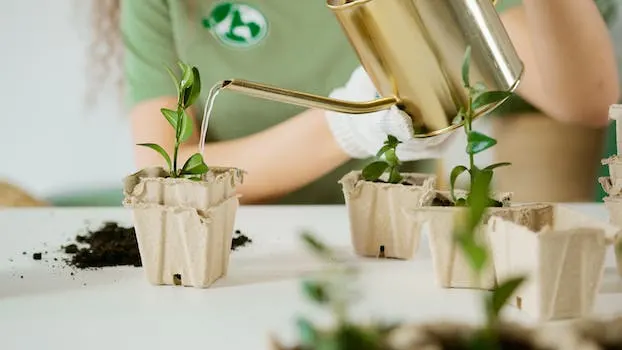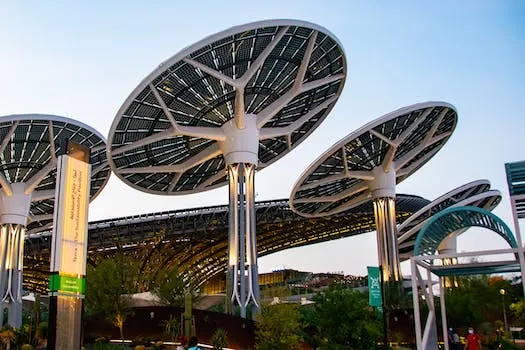
Green Consumption: A Guide for Beginners
Green consumption is an important part of reducing our environmental impact and creating a more sustainable future. It can be daunting for those just getting started, but with the right information and strategies, it doesn't have to be. This article provides an introduction to green consumption and offers tips for beginners on how to get started.
Climate change is a pressing issue that affects us all, but it can be difficult to know where to start when trying to reduce our own environmental impact. Green consumption is one way we can make a difference in the fight against climate change by making conscious decisions about what we buy and how we use resources. Sustainable production systems depend upon consumers' willingness to engage in “greener” consumption, which means considering the environmental impacts of products before buying them or using them responsibly once they are purchased.
Every day we make choices that affect the environment, from what food we eat and how much energy we use at home or work, down to seemingly small decisions like whether or not you bring your own reusable shopping bag when you go grocery shopping. Consumers want businesses to lead the way in terms of sustainability initiatives but individuals also have an important role in greening their lifestyles through green consumption habits such as buying locally produced goods or choosing products with minimal packaging waste.
Green consumption isn't just about making responsible purchasing decisions; it's also about finding ways of using resources more efficiently so that less energy is wasted during production processes and fewer materials are used overall. This could mean anything from investing in energy-efficient appliances at home or switching off lights when leaving a room, all the way up to larger scale initiatives such as investing in renewable energy sources like solar panels for businesses or communities.
The journey towards greener living starts with understanding our individual impacts on the environment and taking steps towards reducing them through green consumption habits such as buying locally produced goods whenever possible or choosing products with minimal packaging waste whenever possible . By taking these small steps today, together we can create a more sustainable future tomorrow!
What is Green Consumption?
Green consumption is the practice of making environmentally conscious choices when selecting products and services. It involves considering the environmental, social, and economic impacts of our decisions and making choices that are better for the planet. Green purchase refers to the green product purchase activities conducted by consumers to save resources and protect the environment. Consumers often have negative associations with sustainable product options, viewing them as being of lower quality, less aesthetically pleasing, or more expensive than traditional products. To combat this misconception, governments around the world are taking steps to cultivate green consumers by pushing for a consumer landscape where products use less water and energy, last longer, and are designed to be easily repaired during their lifetime.
In addition to government initiatives aimed at promoting sustainable consumption habits among individuals, businesses can also play an important role in encouraging eco-friendly practices among their customers. Companies can offer incentives such as discounts on eco-friendly products or rewards programs that reward customers for purchasing green items. They can also provide educational materials about green consumption so that customers understand why it is important to make environmentally conscious decisions when shopping.
On a personal level, individuals can take small steps towards becoming more eco-conscious consumers by researching companies before they buy from them; looking into their sustainability policies; choosing items made from recycled materials; avoiding single-use plastics; buying secondhand items whenever possible; opting for digital downloads instead of physical copies; supporting local businesses who prioritize sustainability over profits; investing in renewable energy sources like solar panels or wind turbines if possible; composting food waste instead of throwing it away; using reusable bags when shopping instead of plastic ones; carpooling or using public transportation whenever possible instead of driving alone in a car etc..
The 52nd annual Earth Day serves as an important reminder that we all have a responsibility towards protecting our planet’s resources through mindful consumption habits - both on an individual level as well as collectively through government initiatives aimed at promoting sustainable practices among citizens worldwide. By making small changes in our daily lives we can help reduce our environmental footprint while still enjoying modern conveniences without compromising on quality or aesthetics - ultimately leading us towards a greener future!
The Benefits of Green Consumption
Green consumption has many benefits for both the individual and the environment. On an individual level, it can help reduce your environmental footprint and save you money in the long run. Additionally, it can help create a positive, sustainable lifestyle that is beneficial for both you and the planet. Green consumption helps to reduce waste, thereby paving the way for a cleaner environment. It also gives individuals an opportunity to sell recycled products and make money while reducing their meat consumption which further reduces their environmental footprint. On a global level, green consumption can help reduce greenhouse gas emissions that contribute to climate change as well as prevent pollution caused by reducing the need to harvest new raw materials. Americans can take simple measures such as reducing their carbon footprint which will not only fight climate change but also save them money and time while avoiding traffic, reducing pollution, improving air quality and enjoying a healthier lifestyle overall. Climate change may seem overwhelming but there are steps we all can take to lessen our impact on the environment such as green consumption which has numerous benefits for both individuals and society at large.
Tips and Strategies for Beginners
If you're just getting started with green consumption, here are some tips and strategies to help you on your journey. Start small and don't try to do too much at once. Begin by making Small changes and work your way up as you become more aware of resources. Practice conservation by turning off the water when scrubbing dishes or brushing teeth, taking shorter showers, and avoiding unnecessary baths. Plant trees, conserve water, and try renewable energy sources such as rooftop solar or LED lighting. Think before buying items; ask yourself if it is really necessary or if there is an eco-friendly alternative available. Choose quality over quantity when shopping for products; buy high quality items that will last a long time instead of buying multiple low-quality items that will need to be replaced soon after purchase. Reuse and recycle whenever possible; look for ways to repurpose or recycle items before throwing them away instead of adding them to the landfill pile. Support green businesses that are making a positive environmental impact in their communities by using sustainable practices in their operations. Harnessing the power of social influence can also be effective in eliciting pro-environmental behaviors in consumption habits - tell online shoppers about the benefits of green consumption! Finally, make small changes to your daily routine - start with bringing a reusable mug for coffee on the go instead of using disposable cups every day!
Conclusion
In conclusion, green consumption is a great way to reduce our environmental impact and create a more sustainable lifestyle. It can be daunting for beginners, but with some education, planning, and determination it can be a rewarding and positive journey. We have provided some useful tips and strategies for those just getting started with green consumption such as 12 Ways to Live More Sustainably, What is it mean to live a more sustainable lifestyle?, This resource center features 45 noteworthy sustainability resources., Consumers want to act green but they expect businesses to lead the way., And 95% of CU Boulder students want to lower their carbon footprint according to a 2020 campus sustainability survey. With these tips in mind we hope that everyone will take the initiative in creating an eco-friendly lifestyle that will benefit both business and the environment.










